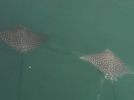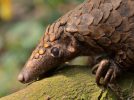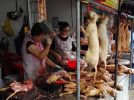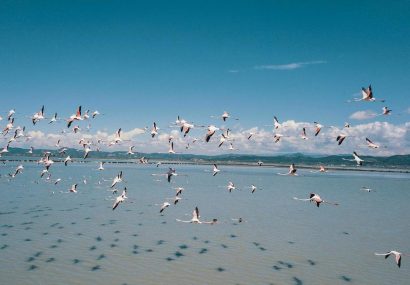
Taoism must be the greenest religion in the world. Dating from more than 1,800 years ago, China’s only indigenous religion emphasises harmony between mankind and nature. Its central concept is the Tao, which is usually translated as “the Way”, and also means “path” or “principle”. It advocates taking a holistic approach, respecting the natural order, and letting things take their natural course. The Way of Heaven is the way of nature; it is not purposive human activity but non-interference.
Obviously, modern China has not followed Taoist teachings – and has lost its way. For four decades, the country’s economy has galloped like a runaway horse, creating huge wealth for citizens and lifting millions out of poverty. It has enjoyed remarkable success, but also racked up huge costs in environmental degradation along the way: serious air and water pollution, water scarcity, desertification and soil pollution.
And now the Covid-19 pandemic.
But this should have surprised no one. An expanding human population, industrialisation and urbanisation at breakneck speed have disturbed the ecology, and our continued erosion of wild space has brought humans uncomfortably close to animals. As a result, more zoonoses – diseases transmitted from animals to humans – have emerged around the world in the past two decades.
Huanan, a wet market in Wuhan, is the suspected epicentre of the novel coronavirus outbreak. There, live animals including bamboo rats, civets and snakes, sometimes caged, were slaughtered and sold, alongside seafood, fresh fruit and vegetables.
Experts believe that the market could have been an incubating environment, since stressed animals have poorer immunity and viruses are more likely to leap from one body to another and to develop. The novel coronavirus probably came from a horseshoe bat, and jumped to an intermediary (possibly a pangolin) and then a person.
Scientists estimate that 75 per cent of new or emerging infectious human diseases come from animals, including many of the worst diseases in recent years: HIV, avian flu, Sars (severe acute respiratory syndrome), Mers (Middle East respiratory syndrome) and Covid-19.
The breeding, trading and consumption of wild animals has made China susceptible to disease outbreaks. But the problem goes beyond China. Modern methods of agribusiness, such as factory farming, are also contributing to the growth of zoonoses.
Read more on South China Morning Post, Featured Image: SCMP



















